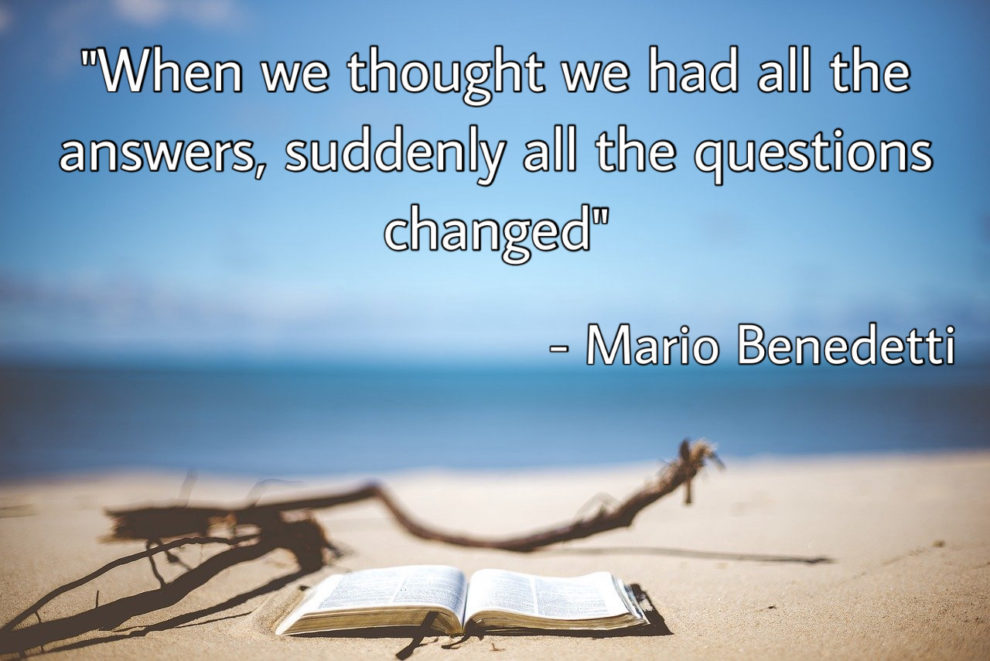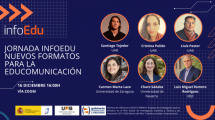Benedetti wrote it long ago and, without realising it, anticipated the perplexity we find ourselves in today with all its crudeness: “When we thought we knew all the answers, all the questions have changed”. Behind this state of perplexity is a pandemic which, in addition to threatening the lives of millions of people in the world, imposes a halt to the social activity which will undoubtedly redefine the next decade of humanity- the world is coming to a standstill, according to Martin Caparrós.
For years we had been thinking – proud and confident – that we knew everything: how to progress, how to relate to one another, and how to organize the world. Now, after COVID-19, we only know that we hardly know anything anymore. That horizon we saw – the tranquil 2020 – no longer exists: it has been shattered. Ahead of us, we have an unknown land, and a world full of new questions.
What are these questions that we need to start answering immediately? I have tried to summarize them under 10 axes, each of which addresses the major changes that we need to embark upon.
- How to protect life and health from now on? As COVID-19 becomes endemic and other pandemics emerge in the future, how do we protect ourselves? What new health systems do we need? How much more will we have to invest in them? How will we distribute resources and how will we provide adequate protection to the most vulnerable?
- How are we to respect the ecological balance at a time when COVID-19 has so clearly demonstrated its necessity? If we recognize that it is the rupture of certain ecosystems that encourages the appearance of pandemics, how can we ensure that these will not be broken in the future? How can we truly fight against global warming, which is the main destroyer of ecological balance? How can we harmonize the new artificial habitatthat we have built with the natural environment?
- How do we create a new framework of personal and social relations in the post-COVID 19 context? If, in response to the pandemic, social distance is imposed on us, how do we ensure the necessary human contactand personal relations in a context where we will have to respect significant social distances? How do we prevent the digital media, which appear to be a substitute for human contact, from ending up expropriating our own lives?
- How will we fight inequality in the days that follow? How will we promote equitable distribution of wealth? How will we protect equal rights? How will we prevent any kind of discrimination in times of contagion, when stigmatization can be a new source of conflict?
- How do we reinforce democracy and a free and cooperative public sphere when, after COVID-19, all public spaces are redefined? How do we resist the surveillance over our lives and the misappropriation of personal data? How do we respond to the emergence of large strategic and technological superpowers that threaten democracy and personal autonomy? How do we deal with sectarianism, polarization, and the progressively heated public sphere? How do we deal with the rise of hoaxes, false news, and misinformation that corrode democracy?
- How do we achieve a sustainable economy in the wake of COVID-19? When we know that excess motivates disease pandemic, how will we manage to balance growth? What new role should the State play in this growth? How do we prevent the culture of exacerbated consumerism from taking hold? What new equilibriums must we ensure between production and consumption? How do we distinguish essential production from dispensable production that harms life and the environment?
- How to guarantee work, employment and activity after COVID-19? If we need to promote full employment, what measures will we need to achieve it? When telecommuting has been developed as a necessity, how will we reconcile it with labour rights and family harmony? How will we face the risk of precariousness, growing dependence and even the tendency towards slavery that is being imposed by the flattening of the economy and robotisation?
- How can we promote science, education and technology in the new post-COVID-19 context? How can we sustain critical thinking that education and scientific production require in a world where hoaxes, disinformationand false news proliferate, and where the information and knowledge oligopolies, which have been strengthened after COVID-19, have been established? How can we reconcile the facilities and risks represented by the growth of e-education and the digital appropriation of information resources? How can we deal with the possible confinements that make school life and educational activity challenging?
- How can we ensure freedom and security in creation, art and culture after COVID-19, when almost all these activities seem to be confined to digital networks? How will we recover the sense of local creation that is so closely linked to human contact and nearby space? How will we maintain diversity in a process of continuous standardisation and digital massification of cultural products?
- How do we achieve a new international order after experiencing the failure of the unfettered globalization and the endless warlike conflicts that we have not succeeded in overcoming? How do we overcome unilateralism, exploitation, invasions, and perversions of cultures and ways of life? How do we ensure global democratic governance in a world that increasingly needs it? How do we limit the effects of the borders that now seem to mount up so steeply?
It is time to pause and rethink all aspects, so that we can answer these questions soon enough. As Martin Caparrós writes in the NYT, “The great moments in history used to be that the world was mobilized to kill people; this time the world stops to save people. So the idea emerges; that halting can be as strong a weapon as mobilizing, especially when it comes to saving. Perhaps it will all be about moving to stop certain moves, certain movements: accumulation and waste. To stop is to move. And to doubt instead of believing: to rethink instead of repeating. Not to fear doubt but to fear certainty. Or we will continue to persist in the same failure, and failure will have been worthless”.












Add Comment